Theodore Taylor Dies
TheodoreTaylor, author of childrens novels such as The Cay, has died at the age of 85. Click here for his website.
Movies, Death & Things Mormon
TheodoreTaylor, author of childrens novels such as The Cay, has died at the age of 85. Click here for his website.
A Movie Review

As a fan of the mini-series and tele-films of Stephen King, I provide this link to an artical on there relative artistic merits.
A Movie Review
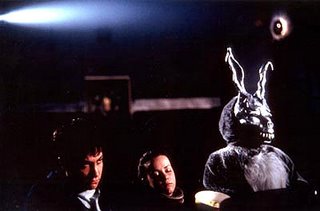
A Movie Review

Hitchcock Suplement

In Memory
This link is provided in celebration of my recently hearing an answering machine message that sounded as if it was recorded by Mortimer Snerd.
With the mid-term elections approching in a couple of weeks, its time for the bi-annual church statement on political neutrality. This year however the scop is a little larger then usuall, with all the media talk of a Mitt Romney run for the big chair in 2008, with articals talking about his 'army of Mormon supporters', the church just wants to make clear that it does not endorse candidates. Though it is of course logical to assume Mr. Mitt will have lots of support within the Mormon community should he run for President.
A Movie Review
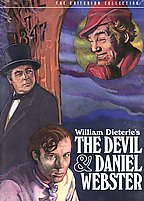
In Memory
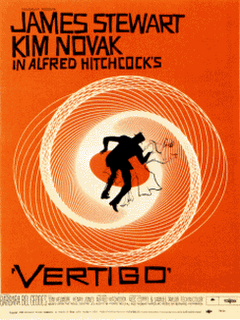
Hitch Part 8 of 15
This is Hitchcock at his most cerebrial. While not my favorite Hitchock film (that title is reserved for Shadow of a Doubt), it can rightly be called his peak, his greatest achievment. Since my first viewing of the film on July 4th 1998, it has been the movie I think of when I think of Hitchcock.
Based on a French novel, Vertigo is the story of John "Scottie" Ferguson (James Stewart), a San Francisco police detective who gains a paralizing fear of hights, after watching a fellow officer fall to his death while on assignment. "Scottie" quickly resigns from the police force after the accident, and spends a great deal of time with his former fiance turned platonic friend "Midge" (Barbara Bel Geddes of Dallas fame). Now with a lot of free time on his hands "Scottie" is contacted by a old colloge budy, Gavin Ellister (Tom Helmore), who hires him to keep a watch on his wife Madelein (Kim Novak), whom he suppects is either mentally ill, or periodicaly possed by the ghost of traggicaly fated ancestor.
Warning, Spoilers:

Mr. Ferguson takes on his friends case, follows the women and gradually falls in love with her. After she flings herself off the bell tower of an old spanish mission, he is devistated and ends up spending some time in a mental institution. Later, after being discharged from the facility, he comes across a young women named Judy Barton (also played by Kim Novak), who looks remarkable like the late Mrs. Ellister, and whom "Scottie" becomes obsecesd with remaking in her image.
While Novak does some increadable acting in the film, creating two fully realized and very different characterizations, it is Stewarts performance that always garners the most praise, and I think this is deservadly so. The only other Stewart performance that is compariable is his George Bailey in It's a Wonderfull Life, a character whose general sense of anger and fustration is always boiling just bellow the surifice, and towards the end of that picture gets a chance to be let out. In Vertigo Stewart delves even deeper into the darker portions of his subconcence, and by extensions Hitchcocks. His man unraveling is even more distrubing to us because it's Jimmy Stewarts, the 'ah-shucks' all American boy of 30's comedies, and honest but slightly rugged cowboy of Anthony Mann westerns from the 1950's. Stewarts 'everyman' stateus makes his comming unglued more real to the audiance, and enhances the hypnotic quality of the film, an undercurrent established in the Saul Bassian opening sequence, and throughout by Bernard Herrmanns amazing score. Vertigo is a must.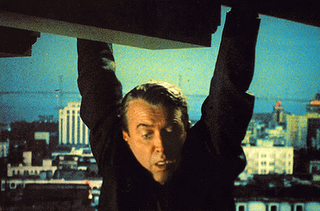
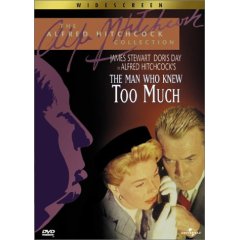

Reviews
In Memory
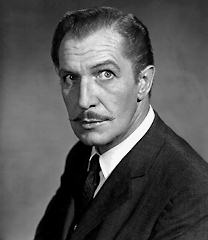
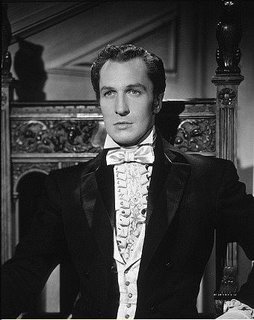 because he was an American and they were preparing a productiong of 'Chicago'. Vincent impressed his fellow actors however and in his next play was given the male lead in 'Victoria Regina'. When the play went to New York he went with it and starred opposite "First Lady of the American Stage" Helen Hayes, he was only twenty four. After his run in 'Victoria Regina' Vincent joined Orson Wells Mercury Theater group, where he meet his first wife society actress Edith Barret, they were married in 1938.
because he was an American and they were preparing a productiong of 'Chicago'. Vincent impressed his fellow actors however and in his next play was given the male lead in 'Victoria Regina'. When the play went to New York he went with it and starred opposite "First Lady of the American Stage" Helen Hayes, he was only twenty four. After his run in 'Victoria Regina' Vincent joined Orson Wells Mercury Theater group, where he meet his first wife society actress Edith Barret, they were married in 1938.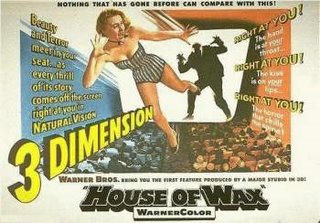 he came to love playing reviled characters. Returning to Fox he had a string of successes in films such as The Song of Bernadette, Wilson, Leave Her to Heaven, Keys of the Kingdom, Dragonwick, and off course Laura. In 1948 Vincent and Edith divorced and the next year he married costume designer Mary Grant. Vincent left 20th Century around this time and became a free agent, using some of his increased spare time to lecture on art at East Los Angles Colloge, where he would endow an art collection. After roles in such comic films as Champaign for Ceaser and The Las Vegas Story, Vincent made his first true horror picture, the immortal House of Wax.
he came to love playing reviled characters. Returning to Fox he had a string of successes in films such as The Song of Bernadette, Wilson, Leave Her to Heaven, Keys of the Kingdom, Dragonwick, and off course Laura. In 1948 Vincent and Edith divorced and the next year he married costume designer Mary Grant. Vincent left 20th Century around this time and became a free agent, using some of his increased spare time to lecture on art at East Los Angles Colloge, where he would endow an art collection. After roles in such comic films as Champaign for Ceaser and The Las Vegas Story, Vincent made his first true horror picture, the immortal House of Wax. f Usher, The Pit and the Pendulem, The Raven, and Mask of the Red Death, among others. In 1962 daughter Mary Victoria was born.
f Usher, The Pit and the Pendulem, The Raven, and Mask of the Red Death, among others. In 1962 daughter Mary Victoria was born.